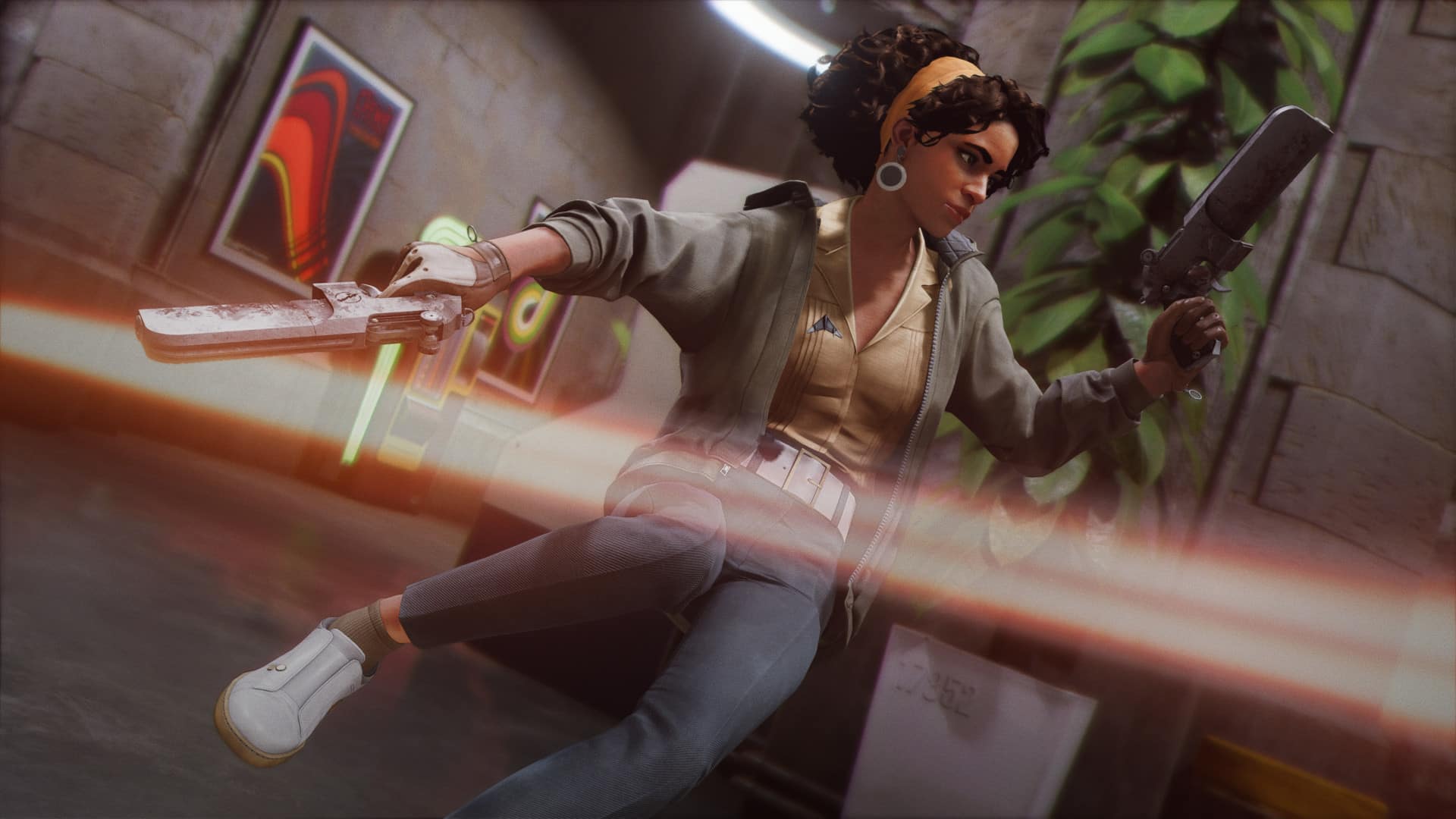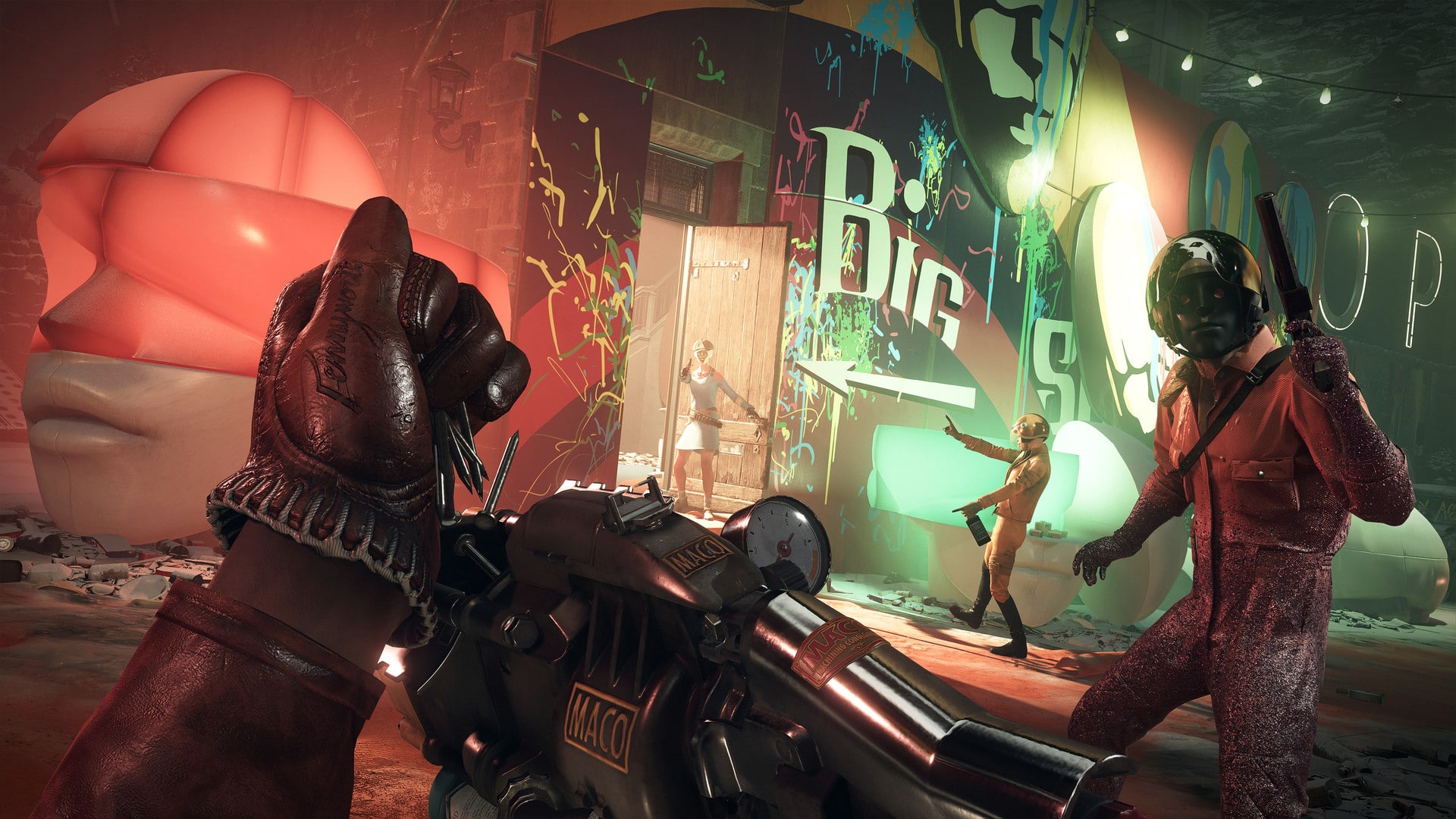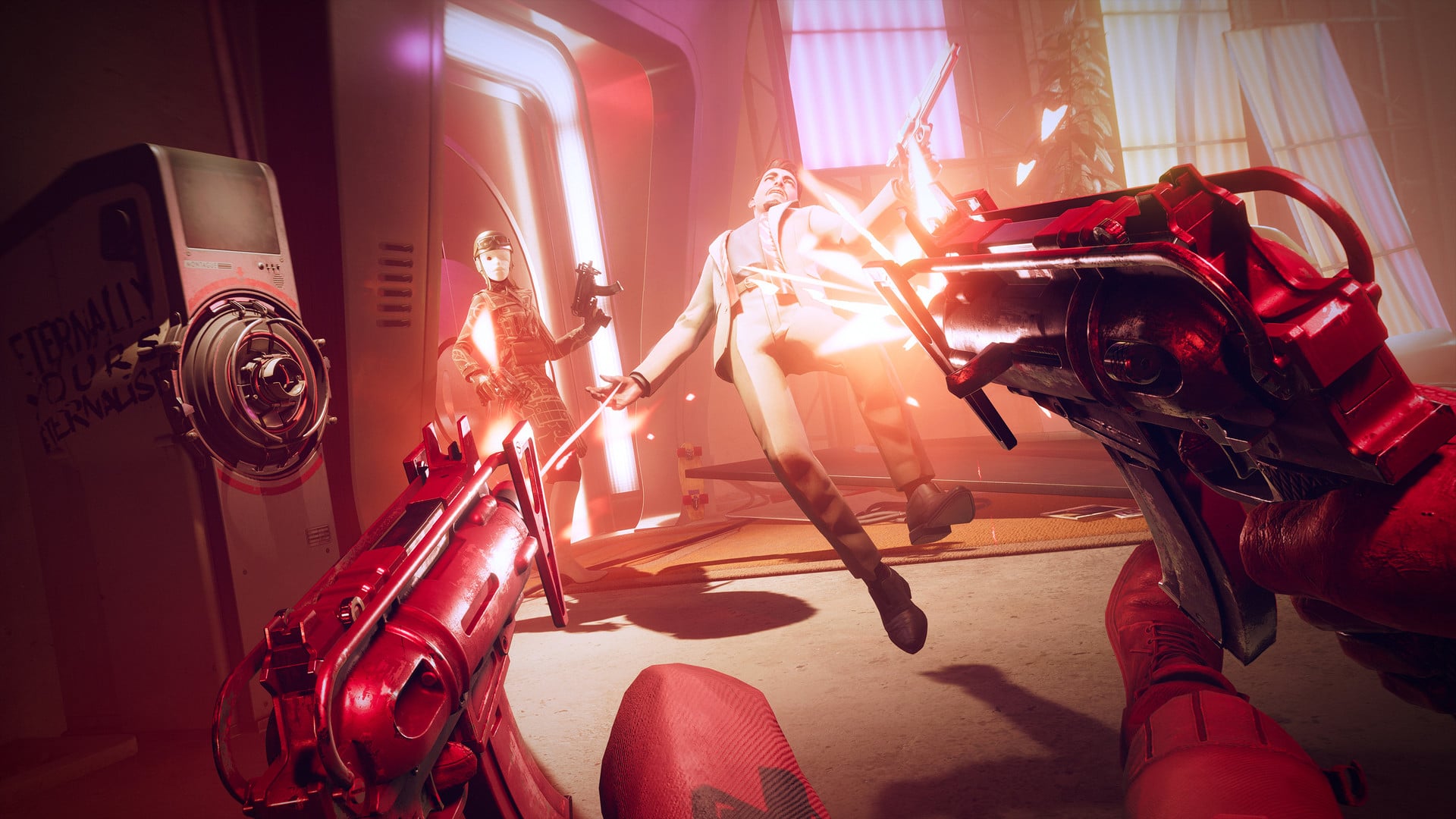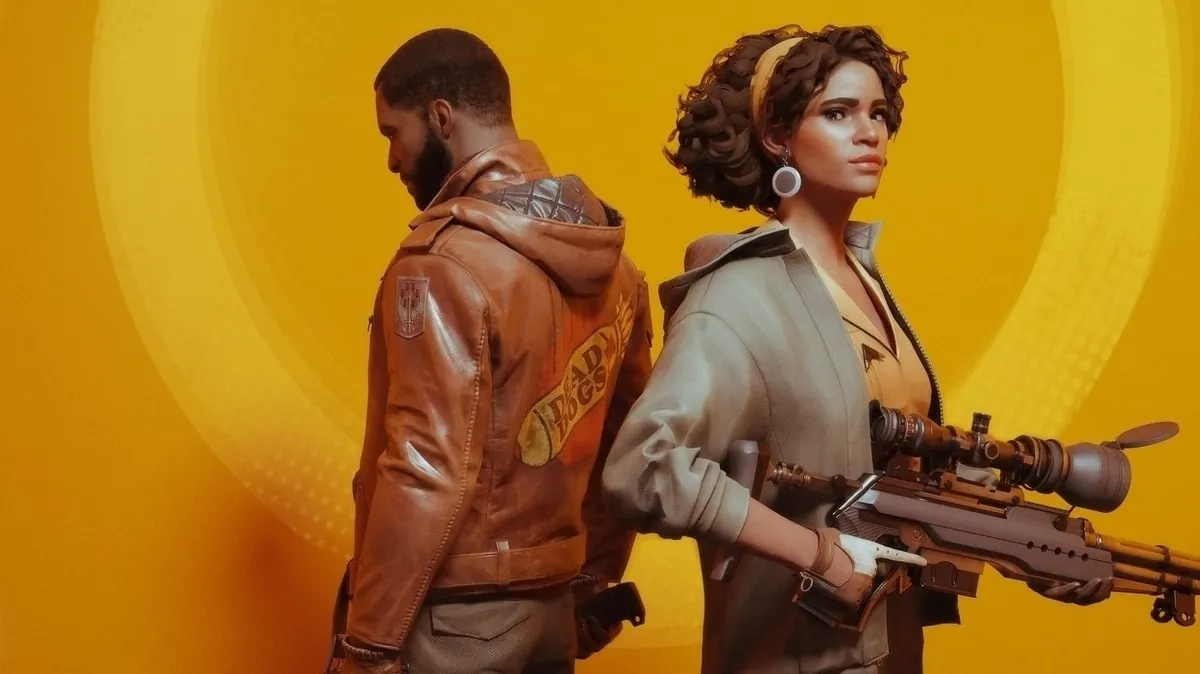This article contains spoilers for the ending of Deathloop and Silent Hill 2.
Parenting is one of the most challenging jobs any person can take on. It envelops countless roles that you play in your child’s life, from birth to adulthood. While there are joys to be had, there are also plenty of unpleasant moments where you have to be the grown-up because your child can’t. It’s not even their fault at times — we all go a bit off the rails without someone to ground us in reality. Yet Deathloop argues for the exact opposite with its odd message about parenting.
To put it shortly, over the course of figuring out how to destroy the titular loop, you as protagonist Captain Colt learn that your rival Juliana Blake is your daughter. She disregards this, believing it changes nothing, but then you arrive at the end of the game — and it kinda does. In order to free the isle of Blackreef from repeating a single day for forever, you have to shoot your daughter in the face. At first there’s the bare threat that, due to her waking first, Juliana can just kill you before you wake, should you break the loop.
Juliana claims your trying to break the loop is some act of disapproval, of Colt’s presumed hatred towards her. When he counters that with the sound logic of wanting to free her from an endless existence in an infinite loop, she gives vague promises of “incredible things” being possible with the loop. Yet within minutes she openly admits all she really can offer is infinite violence on loop, hedonistic psychopathy without consequence. The alternative to all this is shooting her and then plunging to your death to finally break the loop. She promises she’ll hate you if you do, but it’s the only way to end this.
Up to this point, it all makes sense — it’s a question of being the grown-up or indulging in an adolescent fantasy. However, that changes when you compare the two endings and what they contain. Pointedly, there’s a distinct contrast in length, context, and content. Side with Juliana to protect the loop, and you’re greeted with the pair joking about what chaos they’ll cause for the day, how they’ll go out drinking together afterward. The dialogue far outstretches the cutscene, giving a sense of closure and definitive ending to Deathloop. Despite being an objectively horrifying scenario worthy of a Twilight Zone episode, everything’s eerily upbeat without a hint of irony.

However, if you choose to break the loop, Juliana appears briefly before vanishing off with all her powers without saying a word. Other than calling out for her, the closest to plot resolution offered is Colt’s half-believing inquiry that “It… worked?” Then there’s a plain cut to black. No real resolution, no closure, it feels like a section of exposition or some plot revelation was cut at the last second. It’s not simply an uncomfortable turn of events, but rather a blatant dismissal.
Despite all that the story itself is saying on paper, the outcomes provided suggest that not encouraging your daughter to descend into a psychopathic wonderland is a bad thing. To be fair, there are vague arguments that the loop is somehow revealing some hidden secrets of the universe, but Deathloop never makes good on what those are or presents a compelling argument for staying in the loop besides the emotional gratification of Juliana’s approval.
In concept, a downer ending that’s morally correct is extremely viable. Just look at Silent Hill 2. The vast majority of its endings are horrendously depressing, and with good reason. Like in Deathloop, the protagonist of Silent Hill 2, James Sunderland, hurt someone close to him in a terrible way. The difference is in how things play out and the consequences thereof.
Each game centers on grappling with the consequences of that, whether it’s Juliana’s rebellion against Colt breaking the loop or James’ guilt for smothering his wife manifesting as temptation and terror via Maria and Pyramid Head. Maria is the manifestation of everything he wanted from his wife that she couldn’t provide in her ailing state, while Pyramid Head is his repressed sexual rage that led him to put her down. No matter what, he overcomes the latter, but in most conclusions, he either voluntarily or is forced to repel Maria’s advances. She isn’t the cure to his sickness, but the disease itself. He has to let go to move forward, regardless of whether that makes him kill himself or rebuild his life from that point.

As such, the Maria ending is realistically the bleakest one, as it entails him never truly letting go of his sickness. For however satisfying it might feel to those endeared to Maria, it’s an undesirable outcome for James. The myriad downer endings meanwhile have extensive conclusive elements of their own, including one where James adopts the orphan he keeps encountering around Silent Hill. She’s initially skeptical and mean towards him, but if he actually aspires to be a better person, she accompanies him out of the town. It’s an excellent symbolization of new life rather than clinging to the decaying corpse of the old. All these potential conclusions are built around the same structure, knitting together neatly as feasible outcomes.
By contrast, the endings in Deathloop leave much to be desired. This is particularly odd given Arkane’s work on Dishonored 2 demonstrated a far stronger grasp on malleable endings that respect player choice and the subtleties at play. Choices made in Dishonored 2 could be for good or ill; it came down to your approach and how you set the political stage once you were finished righting wrongs.
Deathloop doesn’t really offer anything like this, which is all the more perplexing given Juliana is your daughter. They could have had her behavior reflect your own or at the very least given more lip service to the intergenerational conflict. Instead, you can go most of the game unaware of this major emotional hinge. If Deathloop is really about maturity, then why is Colt portrayed as such an immature hothead? This only gives more precedent to take the unbroken loop route, however reprehensible it might be.

Keep in mind that, in this scenario, only Colt, Juliana, and one side character are truly, fully aware of the loop being in effect. To everyone else, it’s their first day on the island, constantly. The island’s inhabitants are unaware of what’s befallen them, becoming non-consenting playthings for two heavily armed killers acting out sadistic fantasies. Deathloop and Juliana can posture all they want about how there’s more to uncover within the loop, but there’s far more evidence that permitting this to go on is for no other reason than indulgence. Yet, that is what’s framed as the best outcome. It’s an extremely odd choice, made all the more perplexing due to one particular aspect: Sustaining the loop still ends your game.
You’d think maintaining the loop would just let you play ad infinitum, but no, this is an actual ending. They make a point to highlight this as, if you kill Juliana but don’t kill yourself, the loop resets. So this very peculiar resolution where you both don’t die is meant to be a definitive wrap-up. It’s a very specific creative decision, one that I’m still trying to make sense of now.
Legacy and fatherhood have been themes for Arkane for a while now between the Dishonored series and even its Might & Magic game, Dark Messiah. Prey even ends up being about the bonds between two siblings under extreme circumstances. Yet none of these titles have raised an eyebrow-raising implication with their family themes like Deathloop does with its endings.






Published: Oct 23, 2021 11:00 am